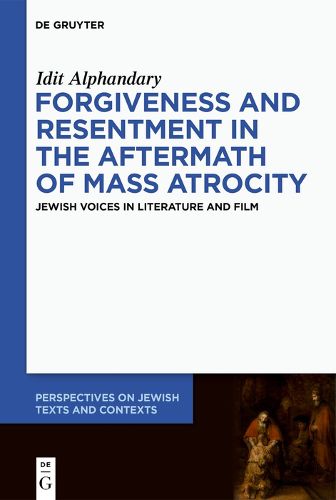Readings Newsletter
Become a Readings Member to make your shopping experience even easier.
Sign in or sign up for free!
You’re not far away from qualifying for FREE standard shipping within Australia
You’ve qualified for FREE standard shipping within Australia
The cart is loading…






The author's starting point is the interweaving of forgiveness and resentment in the works of Jewish writers after the Holocaust, most especially Hannah Arendt and Jean Amery, to make sense of the catastrophe and to point to a way forward for both victims and perpetrators. The insights of these two writers and of several Jewish novelists and poets, including Bruno Schulz, Paul Celan, and Aharon Appelfeld, are used to develop accounts of forgiveness and resentment in other cases of mass atrocity around the world. The author offers a critical rereading of primary sources that aim to separate resentment from nonviolent resistance, and forgiveness from reconciliation. Forgiveness and resentment are not, as they might first appear, mutually exclusive. Together with Arendt, Amery, and Walter Benjamin, it is argued that it is through the interaction between them that victims of mass atrocity become agents of personal and cultural change. Together, forgiveness and resentment interrupt the present, reframe the past, and shape the future. They can reduce the chasm that separates memory and trust by fashioning new connections between identity and alterity, which can open paths to truly ethical coexistence for victims and perpetrators, and their descendants.
$9.00 standard shipping within Australia
FREE standard shipping within Australia for orders over $100.00
Express & International shipping calculated at checkout
The author's starting point is the interweaving of forgiveness and resentment in the works of Jewish writers after the Holocaust, most especially Hannah Arendt and Jean Amery, to make sense of the catastrophe and to point to a way forward for both victims and perpetrators. The insights of these two writers and of several Jewish novelists and poets, including Bruno Schulz, Paul Celan, and Aharon Appelfeld, are used to develop accounts of forgiveness and resentment in other cases of mass atrocity around the world. The author offers a critical rereading of primary sources that aim to separate resentment from nonviolent resistance, and forgiveness from reconciliation. Forgiveness and resentment are not, as they might first appear, mutually exclusive. Together with Arendt, Amery, and Walter Benjamin, it is argued that it is through the interaction between them that victims of mass atrocity become agents of personal and cultural change. Together, forgiveness and resentment interrupt the present, reframe the past, and shape the future. They can reduce the chasm that separates memory and trust by fashioning new connections between identity and alterity, which can open paths to truly ethical coexistence for victims and perpetrators, and their descendants.